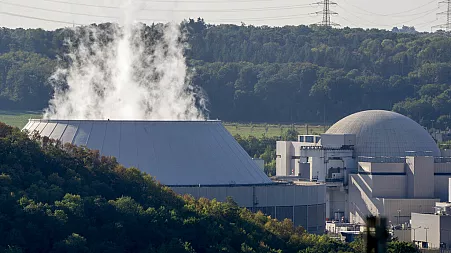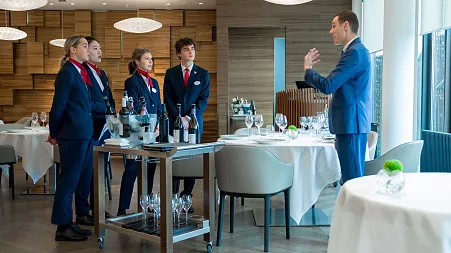
Britons have suffered a slump in living standards, official data shows, as a surge in net migration wiped out any gains from economic growth.
So-called real GDP per head shrunk by 0.3pc between April and June compared with a year earlier, the Office for National Statistics (ONS) said, suggesting living standards have slid backwards as the population grew.
It comes after net migration hit a near-record 685,000 last year.
Experts said the figures mean the population is growing faster than the economy, underlining the challenges facing Rachel Reeves ahead of her maiden Budget.
Paul Dales, chief UK economist at Capital Economics, said: “You have had the population growing at a faster rate than GDP. That increase in the population was almost entirely due to fairly rapid rates of inward migration.
“It suggests living standards are not really improving that much. The increase in GDP we have seen is by and large just because there are more people in the country. But on a per person or household basis, there is not any more income to go around. It is a bit worrying.”
The hit to living standards is greater than the ONS initially believed, previously estimating it at 0.1pc.
It follows soaring immigration in the years since Covid, with the population in England and Wales growing at the fastest pace in at least 75 years in the 12 months to mid-2023.
The Government is facing intense pressure to bring down immigration, with voters most likely to cite it among the most pressing issues facing Britain, just after the economy.
Migration was at the forefront of the Conservative Party Conference in Birmingham on Monday.
The frontrunner for the party’s leadership contest, Robert Jenrick, warned the UK must “get migration done” and said it was a “running sore”.
However, Mr Dales warned that the Government risked undermining a fragile economic recovery by introducing policies that severely restricted immigration.
Mr Dales said: “From an economics point of view if you put any politics aside, you want the labour force growing at a faster rate to support economic growth. A good example is that the Labour Party wants to boost home building.
“That means they need to make sure there are enough construction workers. If there’s not, they need to get some in from elsewhere. There does need to be some joined-up thinking about the economic objectives and what migration means for that.”
The ONS downgraded growth in the three months to June from 0.6pc to 0.5pc on Monday.
The UK economy flatlined in July for a second month in a row, making some analysts nervous that the strong recovery at the start of the year will be short lived.
Sonja Laud, the chief investment officer of one of Europe’s biggest asset managers Legal & General Investment Management, warned governments must strike a balance on overcoming sluggish growth amid a growing backlash over immigration.
She said: “It is that balancing act I think we will find pretty much everywhere around the world, particularly in the developed world. Population growth, if you ignore immigration, is close to zero, in some negative. Productivity growth has been subdued for years.
“To drive productivity growth, you need investment to at least change the longer term trajectory. And you will need immigration. That’s the way economic growth is set up. It’s a really difficult environment. You have an ageing population, so a lot of spend is required.
“How you balance this against the backdrop of very little fiscal headroom is a formidable challenge.”
It comes after Austria’s anti-immigration Freedom Party secured the first far-Right national parliamentary election victory since the Second World War.

Meanwhile, Germany’s far-Right AfD has made major strides at the polls. Ms Laud also noted Labour’s narrow share of the popular vote and the rise of Reform.
She said: “These are very clear signals and a continuation of the election outcomes we have been seeing since the beginning of the year. Clearly, the population is unhappy with current governments, policies and they want change.
“Whether the programs put forward are very credible is a different story, but we are seeing the far right picking up most of the concerns.”
The ONS upgraded UK growth for 2023 from 0.1pc to 0.3pc on Monday.
However, Britain remains the second slowest growing G7 country since the pandemic despite recent upgrades at 2.9pc, ahead of Germany on 0.2pc but behind Japan on 3pc.
By contrast, the US economy is now 10.7pc larger than before Covid.
Disclaimer: The copyright of this article belongs to the original author. Reposting this article is solely for the purpose of information dissemination and does not constitute any investment advice. If there is any infringement, please contact us immediately. We will make corrections or deletions as necessary. Thank you.



